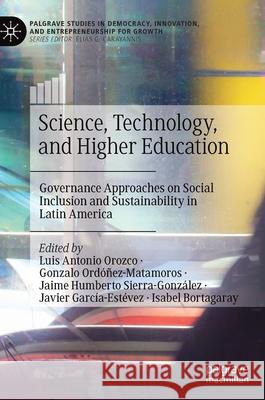Science, Technology, and Higher Education: Governance Approaches on Social Inclusion and Sustainability in Latin America » książka
topmenu
Science, Technology, and Higher Education: Governance Approaches on Social Inclusion and Sustainability in Latin America
ISBN-13: 9783030807191 / Angielski / Twarda / 2021 / 273 str.
Science, Technology, and Higher Education: Governance Approaches on Social Inclusion and Sustainability in Latin America
ISBN-13: 9783030807191 / Angielski / Twarda / 2021 / 273 str.
cena 603,81
(netto: 575,06 VAT: 5%)
Najniższa cena z 30 dni: 578,30
(netto: 575,06 VAT: 5%)
Najniższa cena z 30 dni: 578,30
Termin realizacji zamówienia:
ok. 16-18 dni roboczych.
ok. 16-18 dni roboczych.
Darmowa dostawa!
Kategorie:
Kategorie BISAC:
Wydawca:
Palgrave MacMillan
Seria wydawnicza:
Język:
Angielski
ISBN-13:
9783030807191
Rok wydania:
2021
Wydanie:
2021
Numer serii:
000473933
Ilość stron:
273
Waga:
0.63 kg
Wymiary:
21.01 x 14.81 x 2.54
Oprawa:
Twarda
Wolumenów:
01
Dodatkowe informacje:
Wydanie ilustrowane











